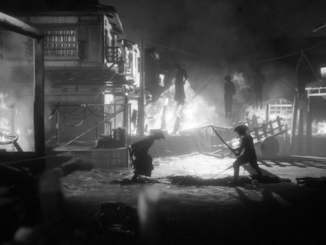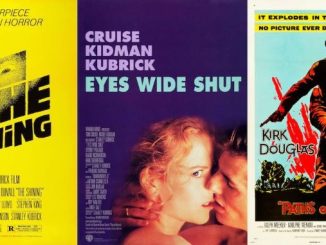With the arrival of the decennial Sight & Sound poll of the greatest films of all time, the discourse has briefly turned its attention to the age-old, amusingly irresolvable question of what constitutes great cinema. Oddly, my own Sight & Sound ballot never showed up – one assumes it got lost in the mail – so I thought I’d indulge my readers’ (aka my) curiosity by putting forward my own Top 10 list. I don’t pretend to have the definitive list, of course. Only the correct one.

1. 2001: A Space Odyssey (1968). To date the most successful pairing of arthouse sensibilities with pure Hollywood spectacle, Stanley Kubrick’s psychedelic masterpiece remains as ripe for competing interpretations today as it did at release, one year prior to the moon landing. A sci-fi meditation on sentience, evolution, and what lies beyond the infinite, it’s a heady, dizzying trip, equal parts thrilling and thought-provoking. The only entry on this list that must be seen on a big screen, it’s my favourite film of all time (by one of the greatest directors of all time, no less).
2. City Lights (1931). Charlie Chaplin was and will forever be the everytramp, his on-screen persona capturing, with a deft comic touch, what it means to live in these deeply unequal, habitually confusing modern times. City‘s depiction of hypocritical politicians, intoxicated millionaires, and the endless travails of one lowly tramp and the blind flower girl he loves, rings just as true today as it did ninety years ago. Chaplin’s affection and sympathy for humanity, especially the lowly and the downtrodden, never once rings false. Also, City Lights is hilarious.
3. The Bridge on the River Kwai (1957). There’s a pathetic quality to Kwai, with its central character – Sir Alec Guinness, in a career-best performance as Lt. Col. Nicholson – led so astray by notions of honour that audiences can be blind to the moment when he ceases being the film’s hero. There are plenty of great war films, and there are plenty of great antiwar films, but Kwai is perhaps the only one in the first category to so accurately capture the futility, absurdity, and meaninglessness of war interrogated in the latter.
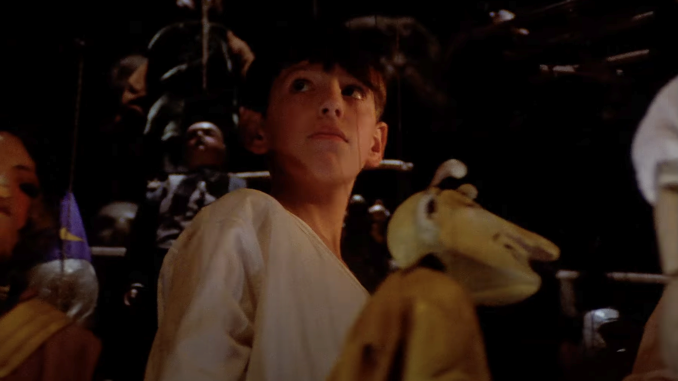
4. Fanny and Alexander (1982). Even better in its original miniseries form, Ingmar Bergman’s magnum opus is the culmination of everything he ever wanted to say about love, hate, indifference, obsession, childhood, ageing, innocence, guilt, and humanity’s fraught relationship with its gods. The cinematic proof of Tolstoy’s adage, “happy families are all alike; every unhappy family is unhappy in its own way”, it follows only two years in the lives of the dysfunctional yet loving Ekdahl family, and yet contains several lifetimes’ worth of experience. With apologies to Truffaut, this is the best film about childhood ever made.
5. Rashōmon (1950). Often imitated but never surpassed, Akira Kurosawa’s murder mystery-cum-ghost story is really a story about stories. A samurai has died, and several witnesses provide accounts which, though different in key ways, contain intriguing synchronicities which suggest that no one version is the whole truth. Its brilliant framing device – a woodcutter and a priest recount the stories told by witnesses to a crime, those competing accounts in turn played out on-screen for the benefit of the viewer – contains layers upon layers of ambiguity. That the film’s central mystery is inherently unsolvable is almost beside the point; Rashōmon is about the power of storytelling itself.
6. Some Like It Hot (1959). It may not be the funniest movie ever made, but it does have the single best final line in cinematic history. While I won’t spoil it here, there’s something special about that one sentence, which serves as the perfect punchline to a riotously funny story while also managing to say something essential about the human condition. Jack Lemmon and Tony Curtis are hysterically funny as bandmates hiding from the mob by going undercover as a pair of female musicians (Some Like It Hot remains rightly acclaimed as a boundary-pushing work of proto-queer cinema), but Marilyn Monroe shines brightest as Sugar “Kane” Kowalczyk, lead singer of Sweet Sue and her Society Syncopators. Monroe, an actress of often overlooked comedic talents, was never funnier.
7. Nashville (1975). 1975 was a hell of a year for cinema, delivering landmark films as disparate as Dog Day Afternoon, Jaws, Picnic at Hanging Rock, and even Sight and Sound‘s newly anointed #1 film of all time. But only one film perfectly captured the post-Watergate, post-innocence zeitgeist, an impressive feat given its superficially niche subject matter – the Nashville music scene. Altman’s rambling style was never put to better use than in this piercing satire, which follows musicians, lowlifes, political operatives, a young Jeff Goldblum on a giant motorcycle, in the days leading up to a political rally. We never see Hal Phillip Walker, the film’s “outsider” presidential candidate, but we regularly hear his voice, spouting ludicrously meaningless phrases out of a loudspeaker mounted on the roof of a van. “When you pay more for an automobile than it cost Columbus to make his first voyage to America, that’s politics” – a populist slogan so dumb it could only be mistaken for brilliance by the American electorate.
8. Dog Day Afternoon (1975). The ne plus ultra of New Hollywood, made by a director (Sidney Lumet) and actor (Al Pacino) at the peak of their powers, it functions as both a taut thriller and a damning indictment of a uniquely American brand of inequality. After a botched bank robbery makes unwilling hostage-takers out of Sonny (Al Pacino) and Sal (John Cazale), the resultant media circus turns them into even more unlikely celebrities. Lumet and screenwriter Frank Pierson use this incident (based on a real hostage crisis) as an opportunity to shine a spotlight on state violence – the spectre of the then-recent Attica Prison Riot looms large over this film – alongside (light spoilers) a surprisingly nuanced portrayal of LGBTQ+ identities.
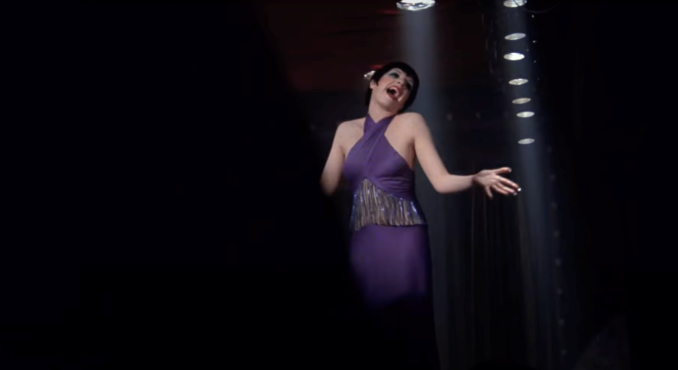
9. Cabaret (1972). By any measure the saddest movie musical ever made, Bob Fosse’s lightning-in-a-bottle adaptation of the Kander and Ebb musical takes everything interesting about the stage production, introduces several new songs – including eternal hits “Mein Herr” and “Money, Money” – and then strips it of everything else. That includes, most significantly, removing every musical number not performed in-universe by a character singing for an audience. This single, brilliant choice means that the world of Cabaret feels real and lived in, and makes Cabaret one of the few musicals in which it actually makes sense when characters burst into song. That believability is key to what is fundamentally a tragic story, set in 1930s Berlin amidst the rise of the Nazi Party.
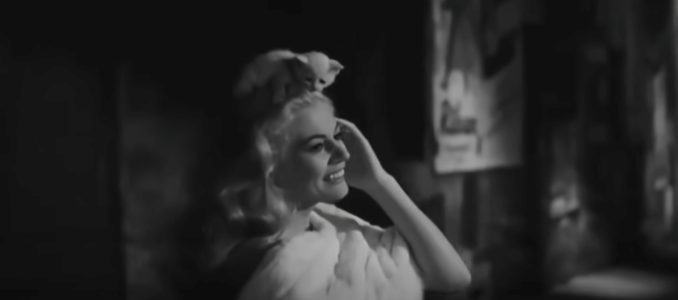
10. La Dolce Vita (1960). There are many iconic images to be found in Federico Fellini’s masterpiece, but if I had to pick one, it wouldn’t be Anita Ekberg in the Trevi Fountain, or even the film’s enigmatic final beach shot. I’d still go with Ekberg, appearing here as the dubiously Swedish-accented “American” actress Sylvia Rank, but I’d choose the moment just before Trevi when she picks up a tiny white kitten and places it on top of her head. The delicate, precious kitten never looks anything less than terrified, making for a cinema-perfect incongruity between the adorableness of the animal, the fear in its expression, the glamour of the actress who only wishes to be surrounded by beauty, and the absurdity of her would-be paramour (played by cinema’s greatest leading man Marcello Mastroianni) dashing off into the night to find a saucer of milk. If that isn’t the definition of the sweet life, I don’t know what is.
***
Check out the Sight and Sound Critics’ Top 100 here.
For our 2020 feature on Films for the Apocalypse, click here.

